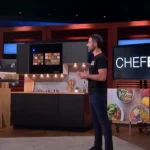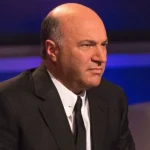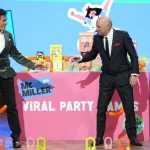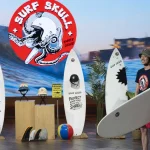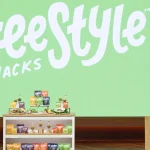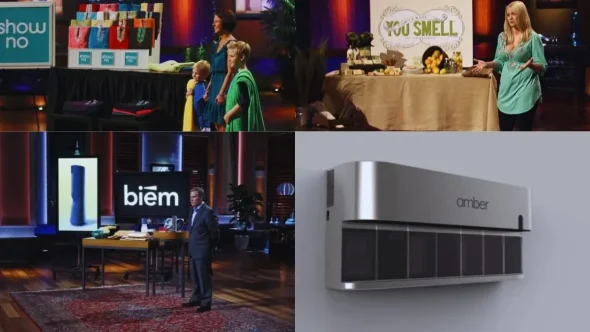
Shark Tank Products That Failed After The Show
Highlights
- Shark Tank offers unmatched exposure to each product appearing on the show.
- The pitches for Biem and You Smell Soap saw an intense bidding fight, but both the products failed after the show.
- Amber shut down within a year of its Shark Tank appearance.
There have been countless Shark Tank products that succeeded after the show based on impeccable global exposure. While the ‘Shark Tank Effect’ cannot be negated, many products have emerged as failures despite the popularity received after the show.
Failures after Shark Tank have not been only those that could not secure a deal. Instead, several Shark Tank products have failed even after getting a deal from the Sharks.
To explain better, seven Shark Tank products that did not perform after the show are listed below. A detailed explanation of the reasons behind these failures has also been offered.
1. ShowNo
Aspiring entrepreneur Shelly Ehler approached the Shark investors with ShowNo, her unique collection of ‘towels with a slit.’ Seeking $50K for 25% equity, Shelly stated that her products were designed for children so that they could change their bathing suits in public in a modest way.
Did ShowNo Towels Get A Shark Tank Deal?
Although ShowNo had just $15K in sales during its Shark Tank appearance, the investors admired her confidence. However, only Lori Greiner, Mark Cuban, and Daymond John liked Shelly’s products and offered her a deal. After many offers and counteroffers, Lori locked the deal for $75K at 25% equity.
How ShowNo Towels Failed After Shark Tank?
The first few months after ShowNo’s Shark Tank journey offered a positive picture regarding the company’s success. Lori Greiner helped the children’s towel venture to step into the gift shop at Walt Disney World’s Water Park. ShowNo towels quickly sold out, but the happiness was not long-lived.
Shelly did not receive any re-orders from Disney. Handling the setback, the entrepreneur slowly managed to secure deals with waterparks and trade shows. But another hurdle for ShowNo emerged when Shelly alleged that Lori was not really involved in the venture. Plus, her deal was just for the television.
Following these tensions, the operations of ShowNo towels ceased in 2016. After somehow starting the business two years later, Shelly finally shut down the ‘slit towel’ venture for children in 2020.
2. Body Jac
Jack Barrington, aka ‘Cactus,’ presented his weight loss invention, Body Jac, in the first season of Shark Tank. Seeking $180K for 20% equity, Jack explained that his offering used a series of bands to help make push-ups easier. Cactus also claimed that he had personally invested $27K in Body Jac.
Did Body Jac Get A Shark Tank Deal?
While the other Shark investors were apprehensive about Body Jac’s valuation, it received a joint deal of $90K for 50% equity from Barbara Corcoran and Kevin Harrington. Daymond John also showed an interest but asked for the whole package of Bodu Jack. Ultimately, Jack took Barbara and Kevin’s deal.
How Body Jac Failed After Shark Tank?
As discussed previously about ShowNo, the Shark investor in Body Jac’s deal (here, Kevin Harrington) helped the latter by taking it to a big infomercial trade show. But a year after Shark Tank, things went downhill for Jack’s venture. The Body Jac website went down in 2012.
Some months later, Barbara Corcoran stated in an interview that the Body Jac deal was one of her worst investments on Shark Tank. Additionally, Jack’s weight loss venture went out of business in 2021. After this, Cactus has been working as a mentor for entrepreneurial students.
3. You Smell Soap
Budding entrepreneur Megan Cummings tried to impress the panelists on Shark Tank with ‘You Smell Soap.’ As the name suggests, Megan presented her range of soaps available in scents like lavender, mint, and lemon. Seeking $55K for 20% equity, the entrepreneur revealed that ‘You Smell Soap’ was ‘pre-venture.’
Did You Smell Soap Get A Shark Tank Deal?
While some Sharks opted out, Mark Cuban, Robert Herjavec, and Barbara Corcoran made their proposals. Mark made the first offer at $55K for 20% equity. Following this, Barbara proposed $55K for 20% equity alongside a royalty of 10 cents per bar sold. But Megan chose Robert’s offer of $55K for 20% equity plus a $55K salary.
How You Smell Soap Failed After Shark Tank?
The journey of You Smell Soap after Shark Tank was a bitter experience for Megan Cummings. While Robert Herjavec did finalize a deal with her on air, the deal did not materialize. Cummings claimed that she did not get his money. Robert then made a second offer of 50% equity, but she denied it.
All of these developments related to You Smell Soap led to a lot of media attention, and Robert faced immense criticism. Despite the controversy, Megan continued with her venture and got her soap bars on Amazon. But it seems You Smell Soap could not taste success, as Megan sold the venture in 2014.
4. Foot Fairy
Nicole Brooks and Dr. Sylvie Shapiro, entrepreneurs, made their way to the Shark Tank judges with Foot Fairy, their iPad app that measured kids’ shoe sizes. Seeking $75K for 15% equity, the duo claimed that their app made parenting easier. Before their Shark Tank appearance, they had 13,144 downloads.
Did Foot Fairy Get A Shark Tank Deal?
Almost all of the Shark panelists refrained from making an investment for reasons like the infant business stage and the chances of duplicity. Nicole and Sylvie received their only offer from Mark Cuban. His proposal was $75K for 40% equity, which was contingent on Mark trying the app and checking for competitors.
Additionally, the Shark wanted to check if Foot Fairy’s technology team had an ownership stake in the shoe size measuring business. The duo accepted Mark’s conditions and the deal.
How Foot Fairy Failed After Shark Tank?
Things did not go well for Foot Fairy after the show, as its deal with Mark Cuban eventually fell through. It was unclear if the deal failed because of any condition that Mark had proposed during the Shark Tank deal. Additionally, just six months after its segment aired, Foot Fairy shut down in May 2014.
After these developments, the Sharks’ concerns during the Foot Fairy pitch appeared to have come true. This is because, by 2021, more than a dozen similar shoe-sizing apps had flooded the app store.
5. Biem
Aspiring entrepreneur Doug Foreman appeared before the Shark Tank panelists with his ‘patent-pending’ kitchen tool, Biem. Seeking $500K for 5% equity, Doug gave a video demo and explained that the tool melted and sprayed butter. Before its Shark Tank appearance, Biem had raised $235K through Kickstarter.
Did Biem Get A Shark Tank Deal?
All the Shark investors were quite impressed with Biem and believed it could take over the kitchen tool space. After multiple offers and intense bidding fights between the investors, Doug decided to go with Lori Greiner’s deal at $500K for 14% equity.
How Biem Failed After Shark Tank?
Biem’s story after Shark Tank reflected completely different results than what the panel members had expected. After the show, Doug’s deal with Lori did not materialize. Additionally, the butter spray venture received countless complaints from angry Kickstarter backers.
Believing that the business could work with a revamped version, Doug created Biem 2.0. But nothing changed for Biem, and it was investigated by The Better Business Bureau.
Despite the negative feedback, Doug kept selling his butter sprays on his company website by 2019. However, there has been no activity on Biem’s social media pages since then, thereby indicating that it is no longer in business.
View this post on Instagram
6. Trunkster
Gaston Blanchet and Jesse Potash, an entrepreneur duo, pitched for their line of zipper-less luggage Trunkster on Shark Tank. The duo started the pitch by claiming to have raised about $2.7 million via Kickstarter and IndieGoGo initiatives. They sought $1.4 million for 5% equity.
Did Trunkster Get A Shark Tank Deal?
All the Shark Tank judges raised apprehensions regarding Trunkster’s huge valuation. Gaston and Jesse justified it by claiming to have pre-sold $2 million in product. Hearing this, the Shark investors joined hands for a deal. Ultimately, Trunkster chose Mark Cuban and Lori Greiner’s offer of $1.4 million for a total of 10% equity.
However, Mark and Lori had laid a condition that Gaston and Jesse must pay them back within two years. Failing to do so, Trunkster’s equity ask would double up. Additionally, the entrepreneurs would be paying $1 per unit in perpetuity.
How Trunkster Failed After Shark Tank?
Trunkster’s deal with Mark and Lori fell through after the show. Additionally, the unique luggage venture often started getting complaints of unfulfilled orders and poor-quality products. This could be seen on Trunkster’s Kickstarter page. Apart from this, social media accounts of Trunkster were deleted.
By 2021, Gaston and Jesse’s company website was gone. Instead, both entrepreneurs started working for other organizations.
7. Amber
Bill Shuey, along with his partner Kyle Byrd, appeared before the Shark Tank investors with Amber, a free, self-locking cell phone charging station. Seeking $250K for 25% equity, the entrepreneur duo revealed that Amber was in its ‘pre-revenue’ stage. Bill believed the product could work in restaurants, museums, and theaters.
Did Amber Get A Shark Tank Deal?
Amber received negative feedback from each of the members of the Shark Tank panel. Some were apprehensive about the security aspect of Bill’s inventive charging product, while others felt the entire idea was bad and refrained from making a deal. So, Amber failed to get a deal.
How Amber Failed After Shark Tank?
Due to the ‘Shark Tank Effect,’ the Amber entrepreneurs did hear from quite a few distributors and manufacturers. However, not many direct buyers contacted Bill or Kyle. The entrepreneur duo then dropped their prices, but Amber still could not thrive. The cell phone charging product shut down in 2015.
Both Bill and Kyle started working for different companies after these developments.
Conclusion
Shark Tank has been a major force in the success stories of diverse products featured on the show. However, almost an equal number of Shark Tank products failed after the show. Many struggled to keep up with the momentum after getting a Shark Tank deal.
Others struggled to capitalize on the exposure provided by Shark Tank’s global platform. All these instances underscore the unpredictability of a televised deal on the show.



